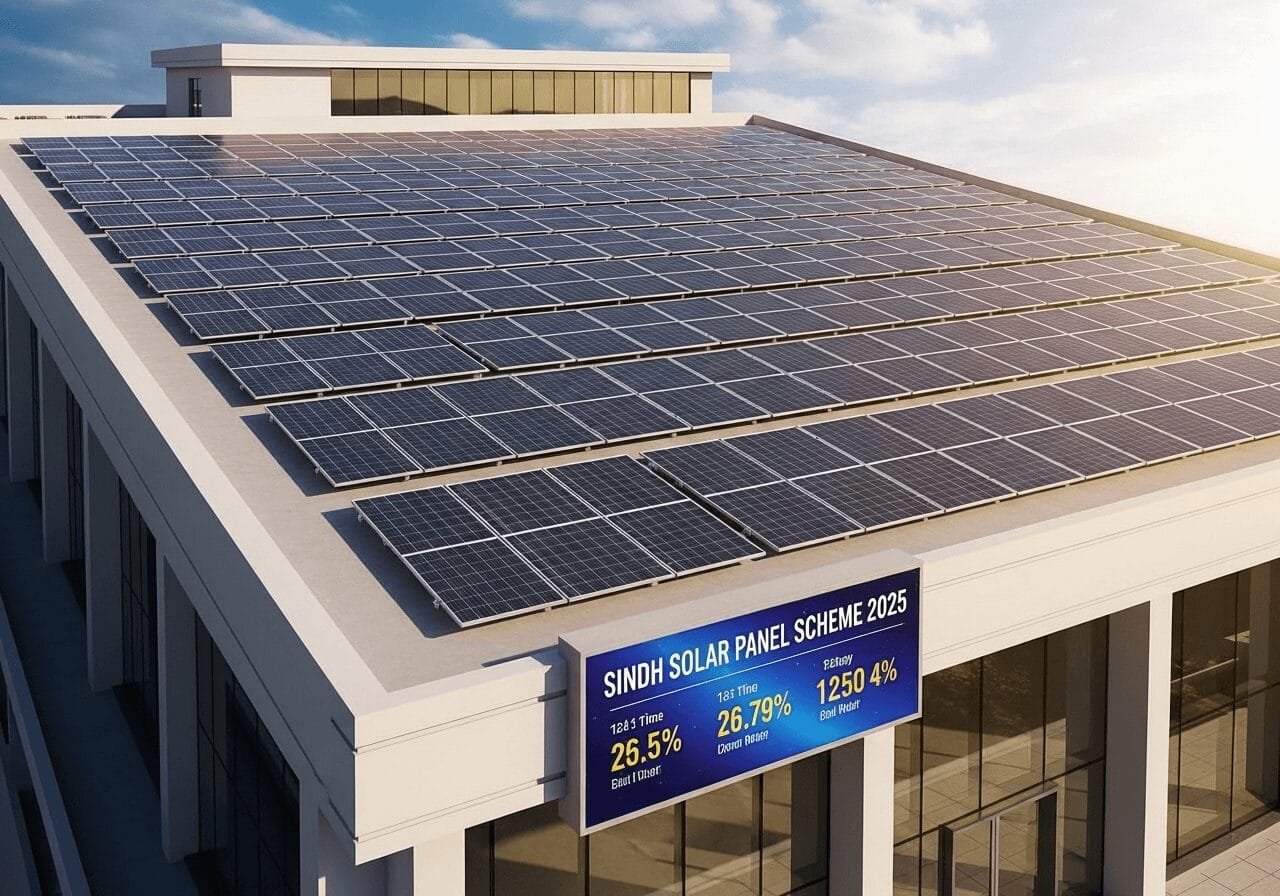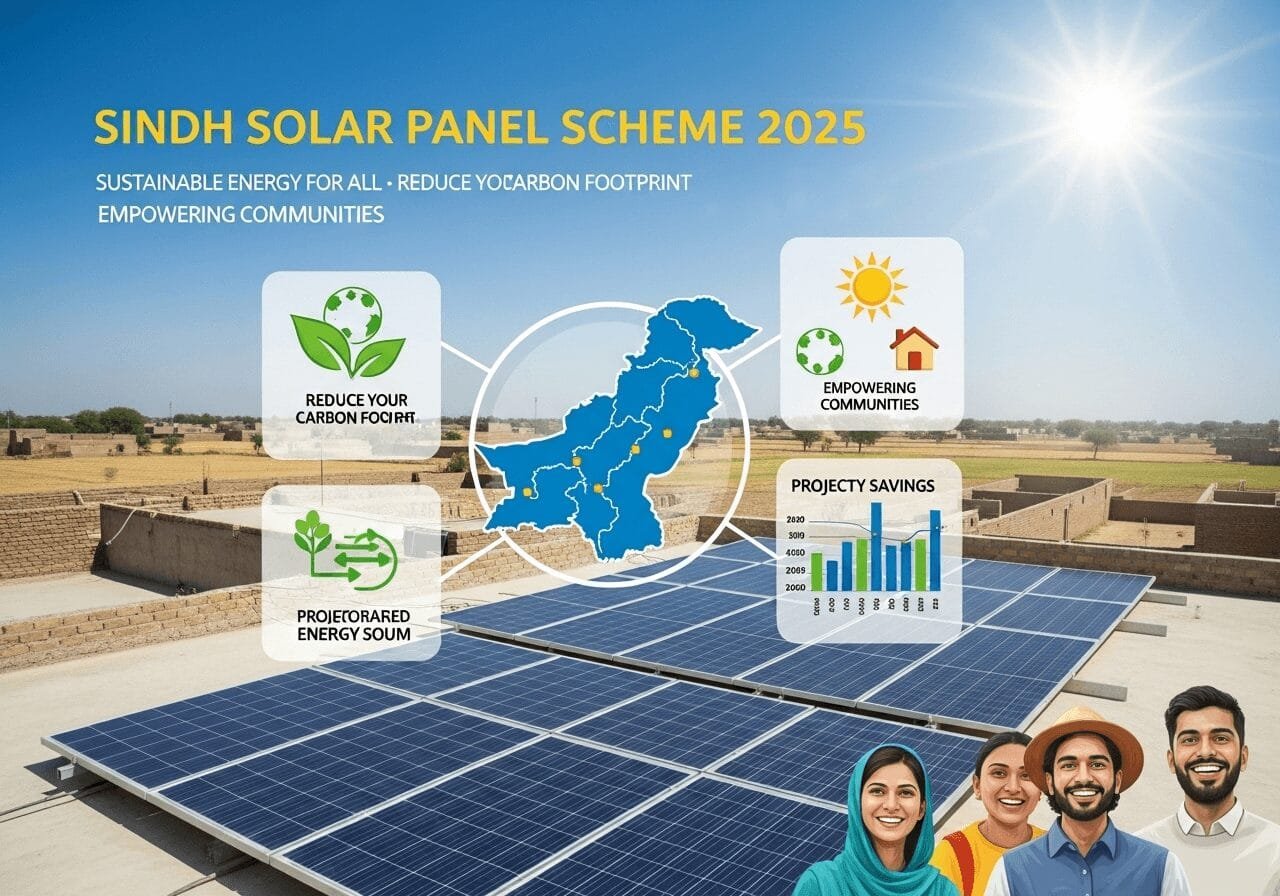Sindh Solar Panel Scheme
Sindh Solar Panel Scheme. Soaring electricity bills have pushed countless families in Sindh to their financial limits each month. The Sindh Solar Panel Scheme 2025 steps forward as a beacon of hope, providing complimentary solar systems to households consuming less than 100 units of electricity monthly. This provincial undertaking champions clean energy, substantially slashes power costs, and aims to deliver much-needed relief to low-income residents province-wide.
End High Bills Now!
This ground-breaking initiative directly addresses the soaring cost of power that burdens so many. The program offers free solar home systems to eligible households, targeting those most impacted by high grid tariffs. Furthermore, the energy initiative seeks to boost environmental sustainability by reducing reliance on fossil fuels.
Check Your Eligibility Easily
Before initiating your application, confirm you meet the straightforward requirements for this valuable opportunity. You must be a Sindh resident with electricity use under 100 units for the past six months, possessing a valid CNIC, and not previously benefiting from similar government schemes. Crucially, proof of property ownership or tenancy is essential for solar panel installation on your premises.
Insider Tip: The “under 100 units” rule isn’t a one-time thing; it measures your average usage over half a year, so be sure your past bills consistently reflect this consumption level.
Verifying your qualification is a simple process using your mobile phone.
- Open your phone’s SMS application.
- Type your CNIC number into the message body.
- Send this text to 8800.
- Wait for an instant reply confirming your eligibility status.

Gather Your Application Documents
Prepare all necessary paperwork diligently before commencing your application journey for the solar program. You will require your Computerized National Identity Card (CNIC), your most recent electricity bill, and concrete proof of property ownership or your rental agreement. Additionally, income verification, such as a salary slip, pension statement, or bank statement, is mandatory.
Insider Tip: Secure your Union Council Chairman or a gazetted officer’s signature to verify your completed application form well in advance, as unverified forms will not be processed.
Apply for Solar Step-by-Step
While many refer to this as an “online” scheme, the formal process requires physical submission via the Sindh Energy Department. Initially, candidates must download the official application form from the Department’s designated website. Fill in every required detail with precision and accuracy.
Attach all supporting documents, including your CNIC, electricity bill, income proof, and property ownership papers. Get the meticulously completed form verified by your Union Council Chairman or a gazetted officer. Subsequently, submit the entire package before the firm deadline of September 20, 2025, at the Sindh Energy Department’s office located on the 3rd Floor, State Life Building No. 3, Dr. Ziauddin Ahmed Road, Karachi.
Insider Tip: While widely rumored as an “online” process, successful applicants personally deliver their forms to the Energy Department’s Karachi office for this unique solar endeavor.
What Happens After Applying?
Once submitted, your application enters the selection phase for this impressive energy solution. If the number of applications surpasses 120,000, final beneficiaries will be chosen through a transparent lucky draw. Successful applicants will ultimately receive free solar systems, expertly installed at their homes by authorized Non-Governmental Organizations (NGOs).
The advantages of securing a system from this renewable energy project extend far beyond mere financial savings. You gain a reliable power supply, especially crucial for off-grid or remote areas, and contribute positively to environmental protection through green energy adoption. Consequently, this initiative fosters energy independence, significantly reducing reliance on unpredictable electricity tariffs.
Insider Tip: An independent third party meticulously monitors the installation process undertaken by NGOs, ensuring equitable and quality service for all selected homes.
Avoid Common Application Errors
Many hopeful applicants mistakenly submit incomplete forms or fail to get them properly verified. Missing the September 20, 2025, deadline stands as another frequent error, instantly disqualifying otherwise eligible households. Providing incorrect CNIC or electricity bill particulars also leads to rejection.
Furthermore, neglecting to attach essential income or property ownership documentation will halt your application’s progress. Therefore, meticulously review every detail and ensure all required papers are correctly supplied. Don’t let a simple oversight jeopardize your chance to gain reliable, free solar power.
Insider Tip: Always double-check every single detail on your form and supporting documents before submission; a simple oversight could cost you this incredible chance.
“The ultimate liberation is freedom from the tyranny of expensive electricity; this scheme paves the way to a brighter, greener future for every eligible home.”
This pioneering provincial energy initiative genuinely offers eligible, low-income families a golden opportunity to embrace clean, affordable solar power. By urgently securing your application before September 20, 2025, you can dramatically reduce household expenses, enjoy consistent electricity availability, and actively contribute to a more sustainable tomorrow.

Frequently Asked Questions (F.A.Q.)
Q1: What is the latest deadline for submitting applications?
The conclusive date for submitting your application is September 20, 2025. Timely submission is strongly advised to avoid missing this opportunity.
Q2: Are tenants eligible to participate in this energy drive?
Yes, tenants can apply for this program provided they furnish valid tenancy documents and fulfill all other specified eligibility criteria.
Q3: Which geographical areas are covered by this renewable energy initiative?
This comprehensive solar program extends its coverage across the entirety of Sindh, encompassing rural areas, desert communities, and locations within the Kohistan region.

